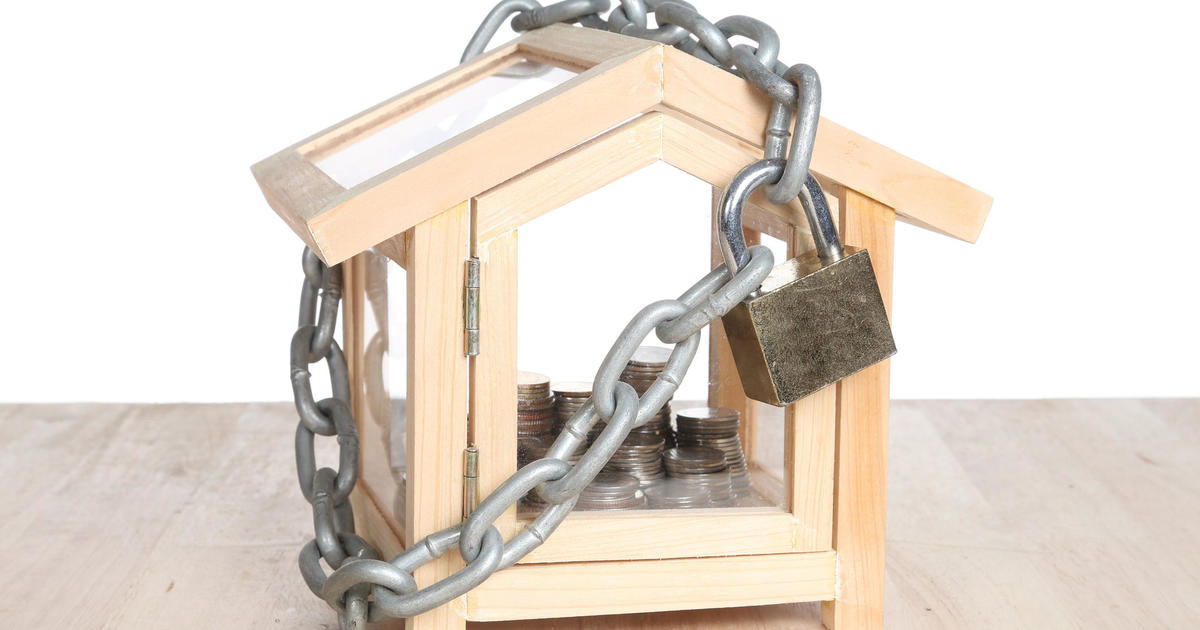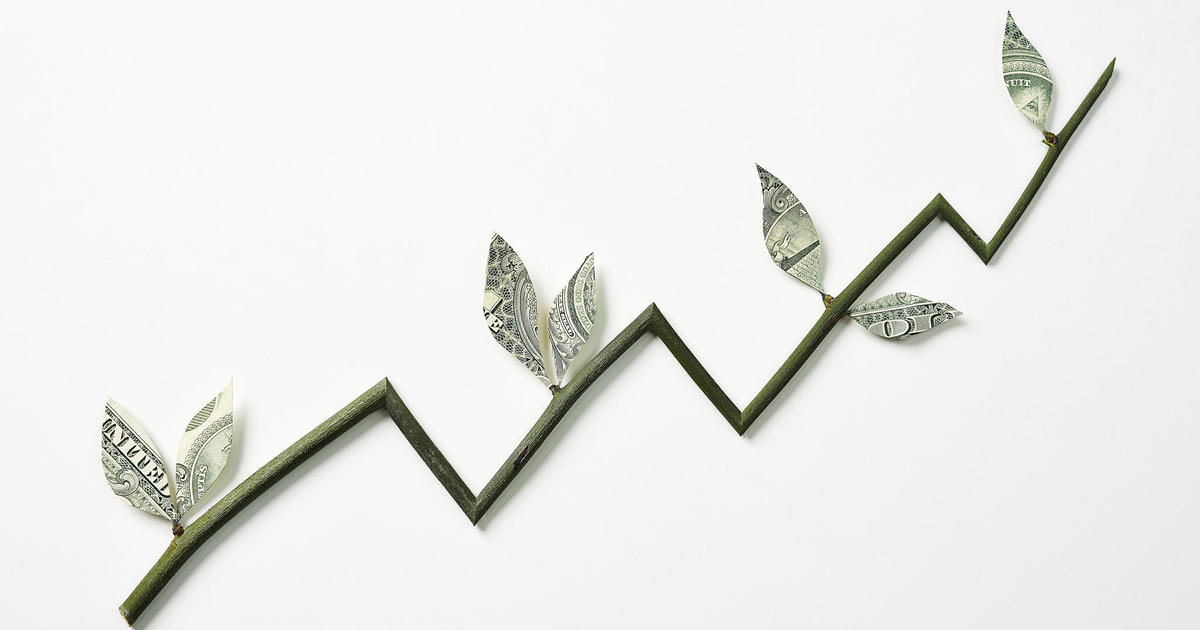Why the U.K.'s "trickle down" tax cut plan terrifies investors
Financial markets are in turmoil this week after the United Kingdom unveiled a series of historic tax cuts. The pound's value plunged, the International Monetary Fund urged the U.K. to reverse course and economist Larry Summers derided the move as "utterly irresponsible."
Although newly installed Prime Minister Liz Truss is betting that the tax cuts will spur economic growth and pull the U.K. out of a possible recession, the adverse market reaction suggests investors see the policy as a major mistake. Here's what's been announced and why investors are worried.
What is the U.K. doing?
The ruling Conservative party on Friday rolled out a massive tax-cuts-and-spending package, dubbed the "mini budget," that includes freezing taxes on corporations, dropping payroll taxes across the board, cutting the highest tax bracket and temporarily subsidizing energy bills.
Truss' finance minister, Kwasi Kwarteng, said the income tax rate for most people would drop to 19% next year, from the current 20%, while the top rate will drop to 40% from 45%. He also canceled a planned increase in the corporate tax rate to 25%, leaving it at 19%.
"The Chancellor's mini Budget was the biggest tax cutting budget we've seen in decades – since the 1970s to be exact," Deutsche Bank senior economist Sanjay Raja said in a note on Tuesday, noting that the plan is expected to cost the equivalent of 1.5% of Britain's gross domestic product.
And that could be just the start of the tax cuts. "There's more to come," Kwarteng said in a TV interview on Sunday, with the Telegraph reporting that high earners, wealthy retirees, doctors and nurses could see further tax cuts next year.
Why is Britain cutting taxes?
The ruling Conservative Party is betting on "trickle-down" economics: The idea, embraced by leaders such as Ronald Reagan and Margaret Thatcher, that shoveling money at consumers and businesses will spur them to spend more, fueling growth across the entire economy.
"A key prong to the new [prime minister's] economic policy is to increase the size of the economic pie, rather than redistributing it," Ruth Gregory, senior U.K. economist at Capital Economics, wrote in a research note.
If the government's gamble pays off and the economy grows at 2.5% next year, "then with a bigger economy comes more tax revenues and an improved fiscal position," Gregory wrote.
Will tax cuts actually boost economic growth?
Investors doubt it, as evidenced by the market meltdown. While the stimulus could provide a short-term boost, it "will increase the public debt, widen the budget deficit, stoke core inflation and weigh on the pound," FocusEconomics wrote in a recent report.
The tax cuts offer the biggest gains to the wealthiest Britons, many of whom have built up a substantial financial cushion during the pandemic and who are most likely to save, rather than spend, additional income. In the same vein, corporations are also more likely to take the tax cut as a way to boost their profit margins rather than to invest the extra funds in expansion or growth, noted Deutsche Bank. The bank predicted the tax cuts would boost the U.K.'s economic growth by only 0.5%.
Gregory, of Capital Economics, said the tax cuts fail to address one major problem hurting Britain's economy — the supply-chain snags driving up the prices of food, energy and many other products.
"Without a major boost to the supply-side, today's fiscal package just means more inflation, higher interest rates and a higher debt ratio in the future," she wrote.
How is the U.K.'s central bank responding?
The Bank of England has been hiking interest rates to bring down inflation, which is nearly 10%. But economists think the tax cuts are likely to further stoke inflation, prompting the bank to raise rates even further and keep them higher longer.
On Monday, the bank reiterated its anti-inflation stance, saying it "will not hesitate to change interest rates by as much as needed to return inflation to the 2% target sustainably in the medium term." Some analysts are predicting a final rate of 6% by the middle of next year — more than double current levels.
The upshot: Barring a policy reversal, the U.K.'s government and its central bank will be moving in opposite directions, with one trying to stimulate demand and the other to quash it.
The International Monetary Fund issued an unusually blunt statement Tuesday opposing the tax cuts.
"Given elevated inflation pressures in many countries, including the U.K., we do not recommend large and untargeted fiscal packages at this juncture, as it is important that fiscal policy does not work at cross purposes to monetary policy," the IMF said, according to Bloomberg. "Furthermore, the nature of the U.K. measures will likely increase inequality."
Why did the British pound fall so sharply?
All that investor anxiety found an outlet in the financial markets, where the pound on Monday suffered its worst sell-off in 40 years, hitting an all-time low against the U.S. dollar.
A nation's currency falls because investors question its economic policy, and this time was no different, noted Toby Nagle, a U.K.-based asset manager, in the Financial Times.
"Nothing in gilt markets in the past 35 years — not the U.K.'s ejection from the Exchange Rate Mechanism, 9/11, the financial crisis, Brexit, Covid or any Bank of England move — compares with the price moves in reaction to the chancellor's mini-budget," Nagle wrote.
In short, the pound's plunge shows that investors are more worried about the long-term impact of the tax cut on the U.K.'s budget than they're excited about the policy's potential economic upside.
"It looks as if the markets have decided that Kwarteng's tax cuts will lead to higher interest rates and that a deterioration in the public finances will undermine the UK's long-term growth prospects," Deutsche Bank's chief investment officer, Zeynep Ozturk, said in a research note.
What's the impact on consumers?
A weaker pound makes imports to the U.K. more expensive for British consumers, raising the prices of goods like cars, furniture, clothing and food.
Already, consumers have seen their energy costs skyrocket, fueled by Russia's war in Ukraine. Home electricity costs surged an unprecedented 54% in April and are set to rise again in October, although the government recently limited the upcoming hike to 27%. The typical monthly bill is now about £3,500, NPR reported, up sharply from its January level of £1,900.
Higher interest rates have also made it more expensive to borrow and, coupled with high energy costs, are set to further squeeze homeowners.
Unlike in the U.S., where homebuyers can lock in a single interest rate for 30 years, British buyers typically refinance every three to five years, making them more vulnerable to market fluctuations. About 300,000 people refinance their mortgage every quarter, according to the BBC.
"Households now face an unpalatable combination of higher prices for imported goods and a massive rise in mortgage repayments, when they refinance," analysts at Pantheon Macroeconomics said in a note. "[A]ny potential boost to business and consumer sentiment from the government's recently announced support for energy bills now will be subsumed by recent developments in financial markets."



